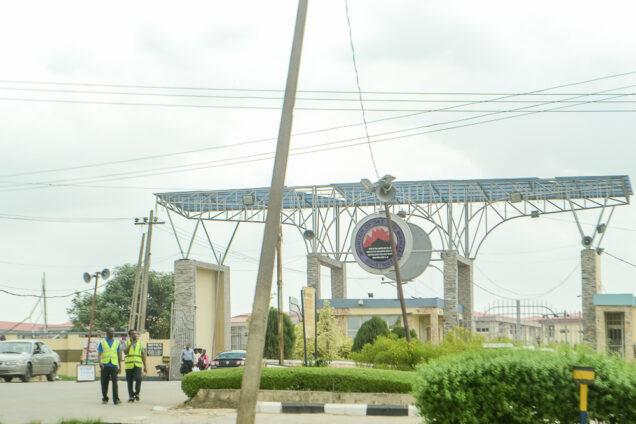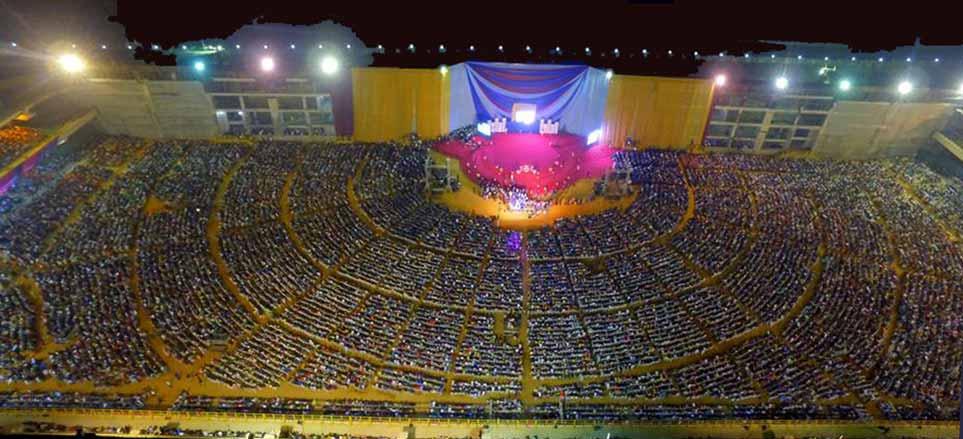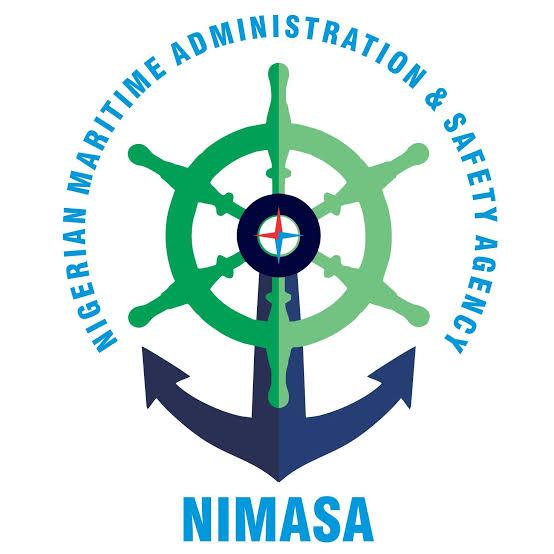The Wealth Profile Of Mountain Of Fire And Miracles Ministries (Mfm)

Mountain of Fire and Miracles Ministries (MFM) is not just another Pentecostal church—it is a spiritual movement that has transformed the religious landscape of Nigeria and many parts of the world. Since its founding in 1989 by Dr. Daniel Kolawole Olukoya, MFM has grown into a globally recognized brand known for its fiery spiritual warfare, intense deliverance services, and massive infrastructure developments. Beyond its religious fervor lies a well-structured financial system that has helped the church build enormous wealth over the years.
In this article, we take an in-depth look at the wealth profile of Mountain of Fire and Miracles Ministries—exploring its income streams, real estate holdings, educational investments, global operations, and social impact.
Foundations of MFM’s Financial Power
MFM was born out of a vision to empower Christians with the spiritual tools to fight the forces of darkness. While many churches emphasize prosperity preaching, MFM's focus has remained rooted in prayer, deliverance, and the scriptures. However, as the church grew in spiritual influence, so did its financial strength. Today, MFM stands as one of the wealthiest Pentecostal denominations in Nigeria and across the African continent.
Key Sources of MFM’s Wealth
1. Tithes and Offerings
The most consistent revenue stream for MFM comes from the tithes and offerings of its congregation. Millions of faithful members around the world contribute 10% of their earnings as tithe, along with regular offerings and special seeds. This steady flow of donations has enabled the church to finance major projects, support operational costs, and expand its outreach.
In international branches—such as those in the United States and the United Kingdom—these contributions are significant. For example, one branch of MFM in the U.S. reported a revenue of $105,964 in a single year, with 100% of that amount coming from member contributions. These figures are from publicly available IRS nonprofit reports, which reveal the financial transparency expected of foreign branches.
2. Real Estate and Infrastructure
MFM’s investment in real estate is massive and strategic. The church owns hundreds of worship centers in Nigeria and across the world. Its crown jewel, however, is the Prayer City, located along the Lagos-Ibadan Expressway. Spanning several kilometers, Prayer City features a 100,000-capacity auditorium, residential quarters, administrative buildings, banking facilities, schools, supermarkets, and more.
This city functions as a religious retreat and conference hub, accommodating thousands of worshippers regularly. The land value alone of this facility is in the billions of naira, not to mention the cost of developing the infrastructure. Outside of Nigeria, MFM owns real estate in places like the UK, U.S., South Africa, and the Netherlands—often purchased outright and used as permanent branches.
3. Educational Institutions
MFM has made significant strides in education, anchored by the establishment of Mountain Top University in Ogun State, Nigeria. The university, founded in 2015, is fully accredited and offers programs across various disciplines. Its mission is to provide academic excellence grounded in Christian values.
Beyond the university, MFM operates numerous primary and secondary schools across Nigeria and abroad. These schools are often fee-paying institutions that generate substantial income for the church. They also serve as a tool for spiritual indoctrination and leadership grooming among the youth.
4. Healthcare and Humanitarian Services
The church's Hospital and Healing Ministry plays a vital role in both its religious and social mission. This ministry provides medical care to members, pregnant women, and the general public during major programs and services. It also organizes health talks, hospital visitations, and HIV/AIDS awareness campaigns.
Although much of this work is charitable, some health services are structured to be self-sustaining or fee-based, especially those within MFM-owned facilities or during large-scale events. This strategic blend of ministry and healthcare contributes to the financial and social capital of the church.
5. International Expansion and Revenue
One of the key drivers of MFM’s wealth is its global expansion. The church has a strong presence in North America, Europe, and parts of Asia, where it has successfully established branches among African diasporas and even local populations. These international branches operate semi-autonomously, generating revenue from local member contributions, special events, and ministry programs.
For instance, in the Netherlands and the UK, MFM’s branches have accumulated significant assets. In 2018, MFM in the Netherlands reported assets worth over €3.8 million. These branches are also mandated to comply with national regulations on nonprofit financial disclosure, thereby offering a rare glimpse into the church’s financial practices.
Real Estate Ventures and Business Interests
In addition to religious properties, MFM is also involved in real estate ventures through affiliated companies. In the U.S., for example, MFM Holdings LLC is registered as a real estate firm. This indicates that the church is not only acquiring property for ministry purposes but also engaging in property management, rentals, and development projects that generate revenue.
Training and Leadership Development
MFM invests heavily in leadership training and ministerial development. Through programs like the School of Evangelism and Church Planting, Youth Ministers Training Program (YMTP), and other online Bible education initiatives, the church prepares the next generation of pastors, teachers, and spiritual leaders.
These programs, often offered globally and sometimes tuition-based, are not only spiritually enriching but also financially beneficial in maintaining a steady stream of trained personnel to grow the church.
Social Responsibility and Philanthropy
Through its "We Care Ministry," MFM provides for the less privileged in society. The ministry handles welfare support, food distribution, clothing for the needy, and outreach to the homeless. The church’s efforts during national crises—such as food drives during COVID-19 and support for IDP camps—have also earned it commendation.
While much of this work is done quietly, it underscores how MFM’s wealth is also being used for community development and social impact.
Controversies and Financial Transparency
Despite its positive impact, MFM has faced financial scrutiny, especially in countries with strict charity regulations. In 2018, the Charity Commission for England and Wales launched an investigation into MFM International in the UK, citing concerns about financial mismanagement. An interim manager was appointed to oversee the church’s affairs.
This episode raised questions about internal financial controls and the need for improved transparency, especially given the church’s size and influence. In Nigeria, where financial disclosure for religious organizations is less enforced, such matters are often shielded from public view.
Conclusion: A Wealthy Spiritual Powerhouse
Mountain of Fire and Miracles Ministries is undeniably one of the wealthiest religious institutions in Africa. With income from tithes, real estate investments, educational ventures, international missions, and healthcare services, MFM has created a sustainable ecosystem that supports its expansive spiritual mission.
While criticisms about financial transparency remain valid in certain regions, the church’s legacy in spiritual warfare, education, and community empowerment cannot be ignored. As MFM continues to expand, its ability to balance wealth with accountability and purpose will define its future both spiritually and economically.
Post A Comment
Your email address will not be published. Required fields are marked *









































































































































0 Comments